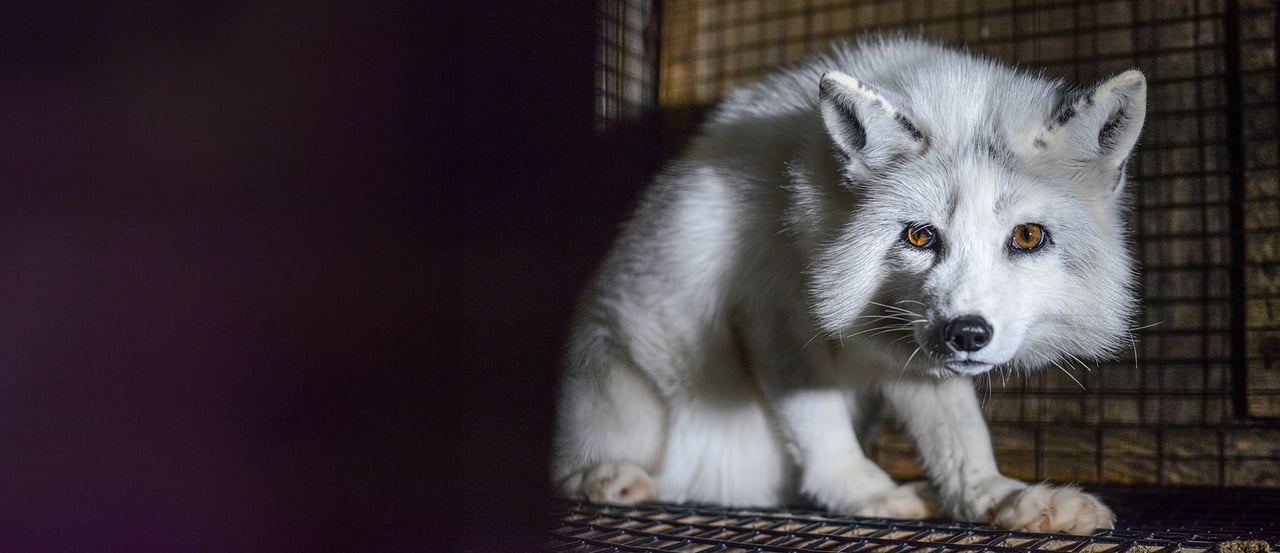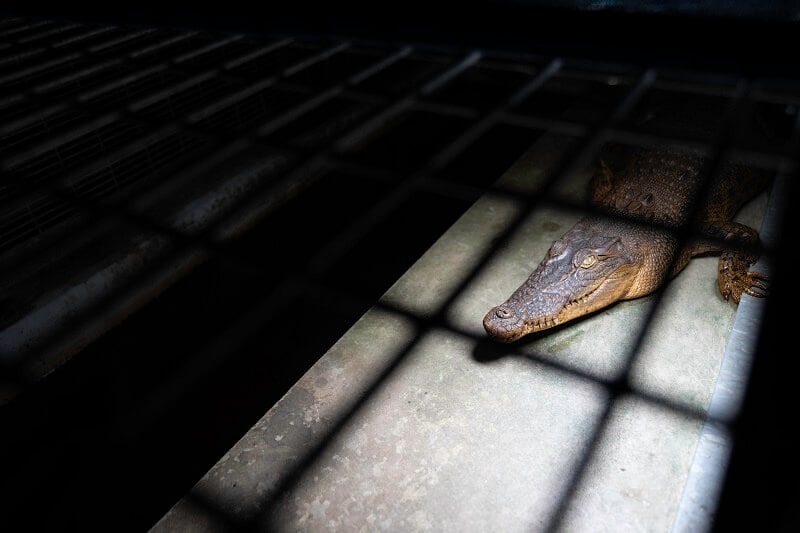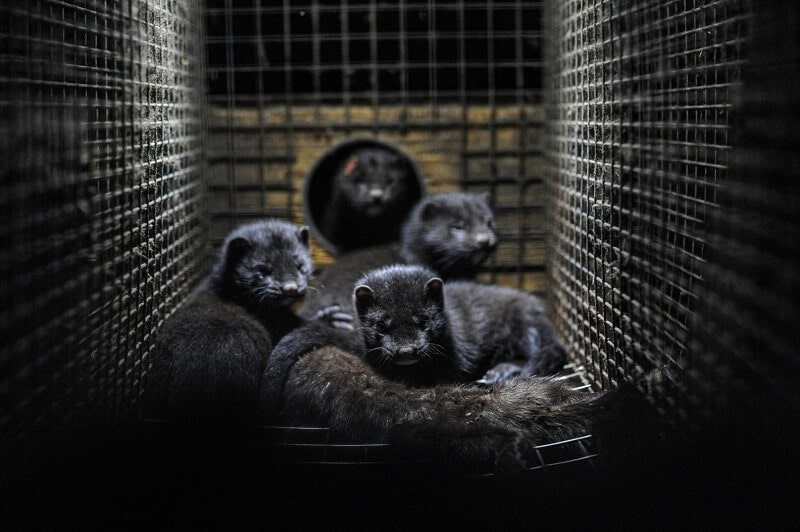Wildlife free fashion
Right now, millions of wild animals are being captured, abused, bred, and mercilessly slaughtered so that the fashion industry can maximise their profit.

Image credit: Jo-Anne McArthur / We Animals Media
Some people believe animals' lives are worthless. And some believe they're worth fighting for.
Some people hurt, exploit and abuse animals. And some campaign, stand up and fight for them.
Some people believe animals belong in cages. And some believe they belong in the wild.
Animal cruelty in fashion has no place in the industry. It’s cruel to subject wild animals to a lifetime of suffering before a brutal death.
Wild animals cannot thrive in cramped and cruel captive conditions. Mink, crocodiles, snakes and millions of other wild animals continue to suffer cruelty in the fashion industry.
Can you help fashion a kinder world for wild animals?
All animals – whether they be mink or crocodiles – deserve lives worth living. You have the power to choose “compassionate fashion” over animal cruelty in fashion.

Crocodile in a cage. Credit: Farm Transparency Project.
Each year, thousands of Australian crocodiles already suffer a short, crowded life before a brutal death. Typically, crocodiles are electrocuted to immobilise them before travel or slaughter. The charge is given on the back of the neck for 4-6 seconds through a pole with a set of metal prongs on the end, before the back of the neck is cut and the brain is pierced.
There are an estimated 135,000 farmed crocodiles in the Northern Territory in Australia. This number exceeds the Northern Territory’s estimated wild population of approximately 100,000.
French luxury fashion brand Hermès is planning to open a massive new farm in the Northern Territory. If it opens, the farm will house up to 50,000 saltwater crocodiles to be slaughtered for non-essential luxury items like handbags, belts and shoes. Three to four crocodiles are killed just to make one expensive luxury handbag, truly making them victims of animal cruelty in the fashion industry.
Australian crocodiles are not luxury French handbags. They are wild animals who belong in the wild. All wild animals deserve to be protected from suffering and exploitation. Crocodiles deserve a life free from stress and suffering – a life that doesn’t hurt.
Killing crocodiles for handbags is cruelty, not conservation. Saltwater crocodiles were once threatened with extinction in Australia due to commercial hunting. This led to their protection in 1971 in the Northern Territory and a recovery of their numbers in the wild. The conservation crisis is well and truly over.
Crocodile farming cruelly exploits wild animals for companies to profit from the sale of luxury fashion products most people can’t afford, perpetuating animal cruelty in fashion.
Let’s fashion a kinder future for crocodiles.

Caged mink on a fur farm. Credit: Jo-Anne McArthur
Europe is responsible for 70% of global mink fur production, with Denmark being the largest producer.
Every year, millions of Danish mink suffer in small, barren wire cages no bigger than a microwave oven. This cruel existence is not a life worth living.
On fur farms, thousands of animals live in crowded conditions despite the fact that they live alone in the wild. This creates aggression and conflict with many mink having open bite wounds or having lost a leg due to fights.
In the wild, where they belong, mink hunt for their food by swimming and diving in water. When they’re denied the ability to express their natural behaviours, it’s as stressful as if they were deprived of their food.
Another risk to animal welfare is the variety of diseases that affect animals on fur farms. Vaccination programmes are inadequate; and selective breeding for fur quality has resulted in strains of mink with a high prevalence of genetic disorders. These can result in deafness, blindness or other sensory impairment, or higher susceptibility to disease.
Due to the detection and spread of COVID-19 among mink on Danish farms, 17 million mink – the country’s entire captive population – have been killed.
A political agreement has now been reached on a ban on mink production in Denmark until the end of 2021. It is a step in the right direction but it is not enough. A permanent ban on mink production must be adopted so that the industry cannot return after the coronavirus crisis.
Let’s fashion a kinder future for mink.
Right now, millions of wild animals are being captured, abused, bred, and mercilessly slaughtered so that the fashion industry can maximise their profit.
Global wildlife trade is an inhumane industry that cruelly exploits our planet’s wildlife for financial gain.
Pledge to not purchase, wear or promote any wild animal skin or fur products.